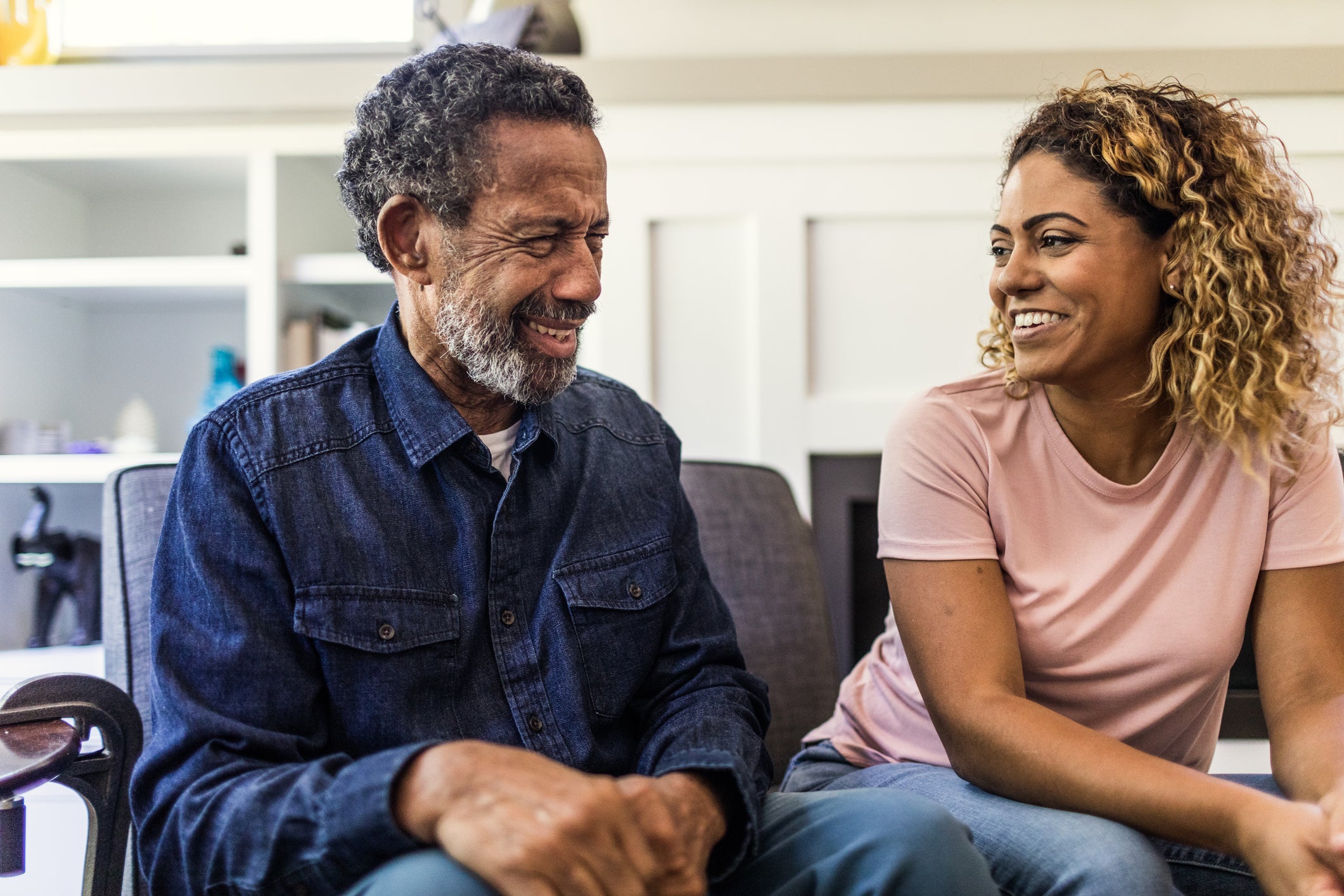
Anyone who has watched This Is Us knows the show is a tear-jerker. The scenes with Jack— the father in the show — always left me snot-faced and ruminating about my life after. Jack was imperfect but loved his kids deeply.
One thing I’ve learned from therapy is to be curious about the things that arouse emotion in me whether “positive” or “negative.” I wished I had a father like Jack, which is why the scenes left me feeling so gutted and sometimes a little sad.
I grew up with my dad, so this isn’t the case of not having one. It’s just that when I hit my early twenties, I found myself repeatedly broken by men who wouldn’t call me back or love me the way I needed to be loved. And I realized my dad was also one of those men. He was physically present my whole life, but in many ways, I felt abandoned by him. He didn’t know how to love me and it caused resentment as well as daddy issues, which of course showed up in my relationships.
I remember waking up one day and thinking, Wow. If I don’t reach out to my dad, I never hear from him. So I emailed him and asked him why he never calls to check and see how I’m doing. He replied and said it was my job to maintain constant communication with him and I shouldn’t be in “competition” with him about who calls who. After that, I refused to reach out to him again.
Over the years my father has been a recurring topic of conversation in my therapy sessions because many of my traumas stem from childhood. It took multiple tearful discussions with my therapist and lots of journaling to accept that my dad didn’t meet my core needs as a child, my grief is valid, and I’ll have to give myself the things he couldn’t give me. That includes positive affirmations, a judgment-free zone, and the understanding of what it feels to be protected, safe and unconditionally loved.
I have also since accepted that I cannot change my grief and resentment won’t either. I can only accept him for who he is and manage my expectations. I do still find myself disappointed when he doesn’t call to check on my son and I, come visit me, or attempt to learn more about who I am. There are still many days I grieve the father I will never have. But in those moments, I ask myself, what we do have now?
What we do have now is a father-daughter relationship that is far from ideal, but it is ours. We have moments where we sit and laugh at my son’s comments and others where we talk about how bad our hometown in Nigeria has gotten. We have uncomfortable moments where I am finally able to say, “When you do this, it hurts me,” and hear him apologize. That heals my inner-child deeply. We have moments where he asks me if I’ll ever get married again and others where we sit in silence pensively—we are both deep thinkers. Then there are days where I watch my once vivacious 70-something-year-old father move slower in pace as I help him move things around the house.
My father and I are both still alive, so that means we get the chance to get to know one another beyond our father-daughter dynamic. Part of my healing journey is learning who my father is as a person. So I recently asked him what his childhood was like and learned he was frequently beaten by an uncle and wasn’t allowed to play but always expected to work. Understanding my dad’s trauma gave me a new level of empathy for him and helped me understand his limitations when it comes to loving me.
Bottom line, my dad didn’t have the tools to give me what I needed, and honestly he still doesn’t. But he’s kind-hearted, peaceful, spacey, friendly, creative, and the only dad I have. So, I think our imperfect relationship is worth nurturing.